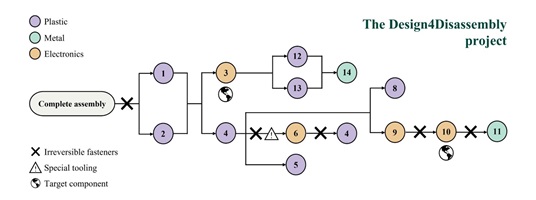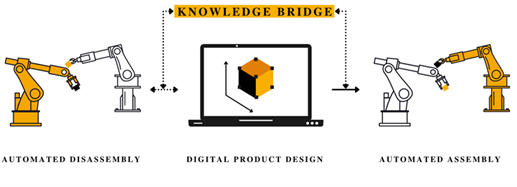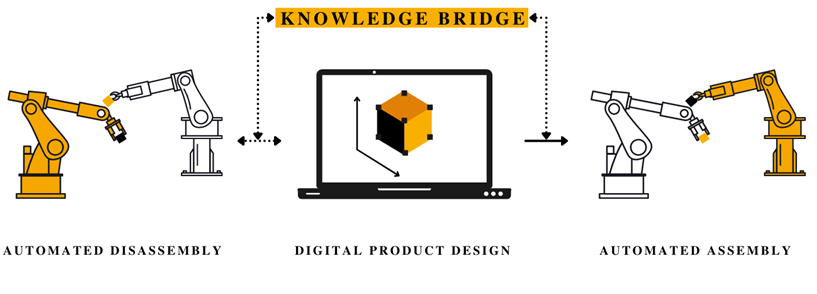In this project methods and guidelines are developed to raise the reuse- and recycling rates in products. The methods apply a combination of material science to identify valuable components for recovery, disassembly mapping and CAD-modelling using digital design modification.
Design is assessed as a catalyst for a sustainable circular economy. Following the EU Ecodesign Directive (2023), the design phase is a strategy to the prevention of waste. Up to 80 percent of a product’s environmental impact is fixed variables in the design phase.In order to make disassembly cost feasible, automated disassembly is to be aligned with the assembly process. However, there is a huge research gap between the technological innovation in robotics and the design principles that support automated disassembly.
The aim of the Ph.D. is to:
- Identify and analyze the technological opportunities and limitation of product design such as geometry, safety and compliance with product standards.
- Digital co-design with three case companies in the project on feasible solutions & guidelines, in developing a digital design catalog that comply with current technological capabilities.
- Evaluate optimization for automated disassembly/dismantling.
The Ph.D. project is enrolled in the TRACE experimental research project Design4Disassembly, which is funded by the Innovation Fund Denmark in 2022-2024. The D4D project is part of the Innomission 4 with the TRACE partnership on Transitioning to a Circular economy as part of the plastic work stream. Principal Investigator is Associate Professor Lykke Margot Ricard (PI) from SDU Innovation and Design Engineering and a collaboration with Professor Henrik Gordon Petersen (Co-PI) as part of the TRACE partnership.
The aim of the PhD. is to deliver a Proof of Concept for ‘Redesign as a catalyst for the circular economy’.
For more information on the PhD project, contact Sofie Back Hybel and for more information about the Design4Dissassembly project as part of TRACE contact Lykke Margot Ricard
Link to TRACE
Part 1: Manual and digital disassembly

Part 2: A proof of concept for a knowledge bridge between “redesign for a circular economy” designing for automated disassembly

